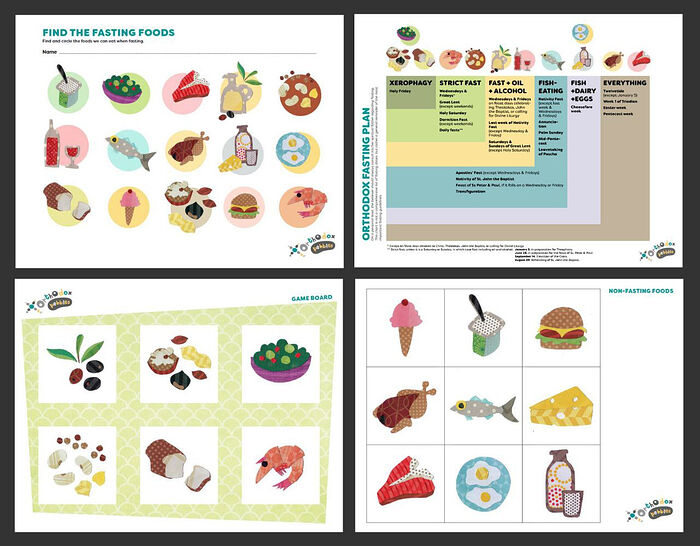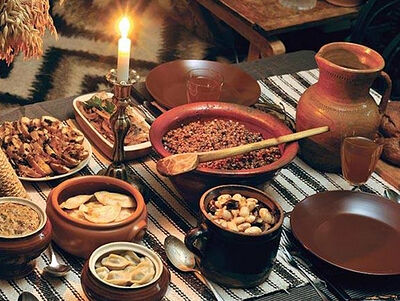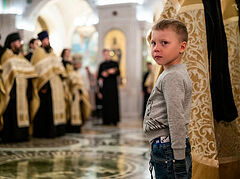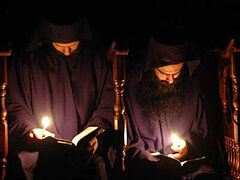Part 1: Let us Fast in Earnest
Part 2: The Meaning and Significance of Fasting
How, beloveds, can we accustom ourselves to fasting? First of all, it requires gradual acclimation. Some rashly and hastily jump in and start fasting beyond their strength. Such a fast is not tenable, not useful, but rather harmful. They either harm their health or become impatient and irritable from hunger—they get mad at everyone and everything to no avail, or their fasting soon becomes unbearable and they give it up. To make our disposition towards fasting firm, we have to accustom ourselves to fasting slowly, carefully, not all at once, but gradually—little by little.
Here’s how experienced fasters did it. Venerable Dorotheos thus accustomed his disciple Dositheos to moderation (temperance in food). First, he asked him how much bread he eats a day. He replied: one and a half pieces. The teacher commanded him to eat one and a quarter. After some time, he asked him again whether he was satisfied or hungry. The disciple answered: It seems a bit meager, but I’m satisfied; I’m not hungry. The teacher then ordered him to eat just one piece. In this way, he led his disciple to the furthest limit, when he ate little but felt healthy, well-fed, light, and ready to work. The teacher didn’t permit his disciple to reduce the amount any further, so as not to become weak and incapable of fulfilling his obediences.
The main thing here is gradualness, with which a man can easily acquaint himself to anything good—even difficult things; but by grasping at this and that without order, hardly anyone can accustom themselves to anything decent. Thus, following this example, let everyone pay heed to his stomach and determine how much food and drink he requires in a day. Then gradually reduce the amount of food you consume, to the point where it’s no longer possible to reduce it any further, so as not to become weak and exhausted and incapable of working. Here is the main rule given by the Lord Himself: Do not burden your hearts with overeating and drunkenness. This is about the amount of food—how much you consume.
And as for quality, or in other words, what precise kind of food we should eat, our loving mother the Holy Church has decreed wisely. It didn’t prescribe continuous fasting for us, as many of us prescribe ourselves continuous meat eating. No, the Holy Church knows the ways of our nourishment better than us. It has appointed four fasting periods a year and two days a week. Why has the Church arranged its fasts this way? In addition to the moral aims—to weaken the body and make it a more obedient instrument of the spirit and thereby cleanse it from all sinful filth—the Holy Church also had healing goals in mind when arranging fasting days and times. If our body were to be nourished throughout the year with the same kind of food—either non-fasting or fasting, then our stomach could easily either fatten or become weak or get obstructed. Therefore, it must be cleansed from time to time, or set in order, as doctors do and advise to do. With this in mind, the Church has arranged its fasts so they might be healing for us: After prolonged consumption of non-fasting food, it gives us a fast to cleanse and restore the activity of the stomach; and having done this, the Church again permits non-fasting food.
The time for eating during fasts is set as no earlier than noon. You also need to accustom yourself to this gradually. After acclimating yourself to the amount of food, this won’t be hard to do. But bodily fasting alone isn’t enough; spiritual fasting is inextricably linked with it.
Amen.







